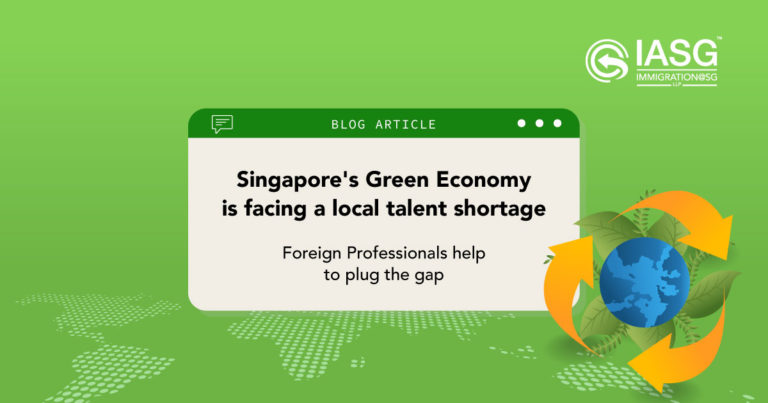Singapore, a thriving economic hub in Southeast Asia, has experienced significant growth in its e-commerce sector in recent years. The e-commerce industry contributed nearly $2 billion (17.3%) to Singapore’s gross domestic product (GDP), and $1.18 billion in exports in 2022. As the world continues to shift towards digital interactions and online transactions, Singapore’s e-commerce landscape is poised for continued growth and expansion.
Industries that Support e-Commerce
The e-commerce industry has contributed is highly dynamic and interconnected, relying on various sectors to support its growth and operations. Due to its global demand, the growth of e-commerce also helps these supporting industries grow as well. In 2020, e-commerce has created jobs in Singapore. Several industries play a crucial role in supporting or working with the e-commerce industry. Here are some key sectors:
-
Logistics and Transportation
The main backbone of e-commerce is the logistics sector, supporting businesses with international import and export of products, shipping and freight, warehouse management, product fulfilment services, and local deliveries to the consumer. More and more businesses offer turnkey service where businesses only need to engage one company for all these services, ensuring a more simplified, manageable and cost-effective process.
-
Payment and FinTech
Digital payments is a great contributor to e-commerce’s rapid growth. Singapore’s support for startup companies has caused an increase in fintech companies providing innovations in financial services such as crypto exchanges and payment processing services.
With a seamless, cashless payment system, consumers can easily make purchases with a few clicks from vendors located worldwide. Payment processing services such as Paypal, Google Pay, and Stripe are now available across most e-commerce platforms globally, offering multiple payment options for consumers and businesses to access.
-
Technology and Software
Providers of e-commerce platforms and software solutions such as Shopify, Amazon, and Shopee enable businesses to set up and manage online stores easily. Unlike physical retail stores, high resolution photos, videos, and good product descriptions make up an online store. Testimonials from past customers help promote the products and services of a business.
Advertising campaigns can be done on the e-commerce platform itself and are easily manageable with data analytics available. This allows business owners to analyse customer behaviour, product and/or service preferences, and market trends to make informed decisions. Unlike traditional marketing where advertising and promotion would incur high costs, digital marketing can start from as low as $1 per day, depending on the market conditions of a particular niche or product. Digital marketing also tracks the effectiveness of the advertising campaigns, bringing down costs even more and increasing the chance of sales.
-
Digital Marketing
While advertising campaigns can be done on e-commerce platforms, it is limited to users of that particular platform. To reach out to a greater audience, businesses need to do marketing on other platforms such as Google Adwords, Meta Ads, and Tik Tok ads.
Apart from paid ads, businesses may generate organic traffic from their owned platforms such as their own website via search engine optimisation (SEO), social media marketing and content marketing on Facebook, Instagram, Threads, Tik Tok, X, LinkedIn, Youtube, and more, and last but not least, email marketing.
To streamline all marketing efforts, it is easier to engage a digital marketing agency. Digital marketing agencies have been sprouting in Singapore in the past few years to offer services to local businesses.
-
Manufacturing and Production
Companies that produce consumer goods sold through e-commerce channels benefit greatly from the rise of e-commerce. It serves as a new sales channel that could reach worldwide audiences.
-
Customer Service & AI
The human touch is still needed by customers even though digitalisation is becoming the norm. Customers need to talk to a real person who could understand and solve their problems promptly, something that cannot be done by AI or bots at the current moment. Although, artificial intelligence (AI) tools that enhance customer interactions and provide instant support can help improve work processes and be more efficient, resulting in a more satisfied buying experience for customers. Outsourced or in-house customer support services handle inquiries, complaints, feedback, and provide assistance to online shoppers in every way.
-
Packaging
All products not only need to be packaged properly for safe shipping and delivery but it is also a statement about the company’s branding and values, ensuring a pleasant holistic customer experience. In e-commerce, the packaging must also adhere to specific shipping and delivery regulations set by the logistics provider. The rise of global warming concerns also makes businesses choose environmental-friendly packaging that would reduce its negative impact in the long run.
-
Legal and Regulatory Compliance
Legal experts who assist e-commerce businesses in navigating regulations related to online transactions, privacy, and intellectual property.
-
Cybersecurity
Due to its high internet and mobile penetration, Singapore is the top country for highest amount of money lost to scam. Cybersecurity companies specialising in securing online transactions and protecting e-commerce platforms from cyber threats and fraud are on the rise and their services are much needed in the country.
The e-Commerce Ecosystem & Its Opportunities
These industries collectively form an ecosystem that supports the seamless functioning and growth of the e-commerce sector. Collaboration and innovation within these sectors contribute to the overall success and sustainability of the e-commerce industry.
Job opportunities in e-commerce and all its supporting industries are abundant in Singapore. Apart from attracting foreign talent in various focus industries, the government also offers support for mid-career switch and e-commerce is one of the courses available. Business opportunities are also abundant. Entrepreneurs can take advantage of this opportunity for long-term profitability.
If you are a talented professional in any of these industries mentioned above, have been working and living in Singapore for at least 2 years, and would like to apply for Singapore PR or Singapore Citizenship, do contact IASG for enquiries at +65 6493 1830 or email to info@iasg.com.sg. Foreign entrepreneurs who want to set up a business in and ride on SIngapore’s e-commerce growth, can also contact IASG for more information.
Manpower Shortage in e-Commerce
While the e-commerce industry in Singapore is booming, there are concerns about a potential shortage of skilled manpower. The high demand for professionals with expertise in digital marketing, data analytics, logistics, and e-commerce management is rapidly increasing.
To address the manpower issues, the government has been promoting life-long learning to all residents and upskilling for people who are interested in a mid-career switch. Training programs that equip individuals with the skills necessary for the e-commerce landscape are offered through the Skillsfuture program by various approved providers in Singapore. This initiative also helps training graduates get jobs in the new fields via various opportunities such as job matches and industry events.
A highly talented foreign talent may apply for the ONE Pass in Singapore to take advantage of this booming industry. For eligibility information, please visit this MOM site. For enquiries on how to apply for ONE Pass, call IASG at +65 6493 1830 or email to info@iasg.com.sg to book a consultation.
Comparing Singapore’s E-Commerce Scene to the World
Singapore’s e-commerce ecosystem is well-regarded globally, boasting a robust infrastructure, reliable logistics, and a secure online environment. Compared to other countries, Singapore ranks high in terms of digital readiness, making it an attractive destination for international e-commerce businesses. However, the market is still relatively small compared to global giants like the United States and China. To enhance competitiveness, Singapore needs to focus on innovation, collaboration, and agility to adapt to changing consumer behaviours and global market trends.
Future of E-Commerce in Singapore
The future of e-commerce in Singapore is promising, driven by factors such as increasing internet penetration, a tech-savvy population, and a growing preference for online shopping. The government’s commitment to fostering a digital economy and innovation further supports this trend.
However, it comes with its share of challenges, including a potential manpower shortage. By investing in technology, fostering talent development, and adopting strategies for sustainable growth, Singapore can continue to position itself as a global player in the e-commerce arena. With a forward-thinking approach and a commitment to innovation, Singapore has the potential to shape the future of e-commerce not only in Southeast Asia but on the world stage.







